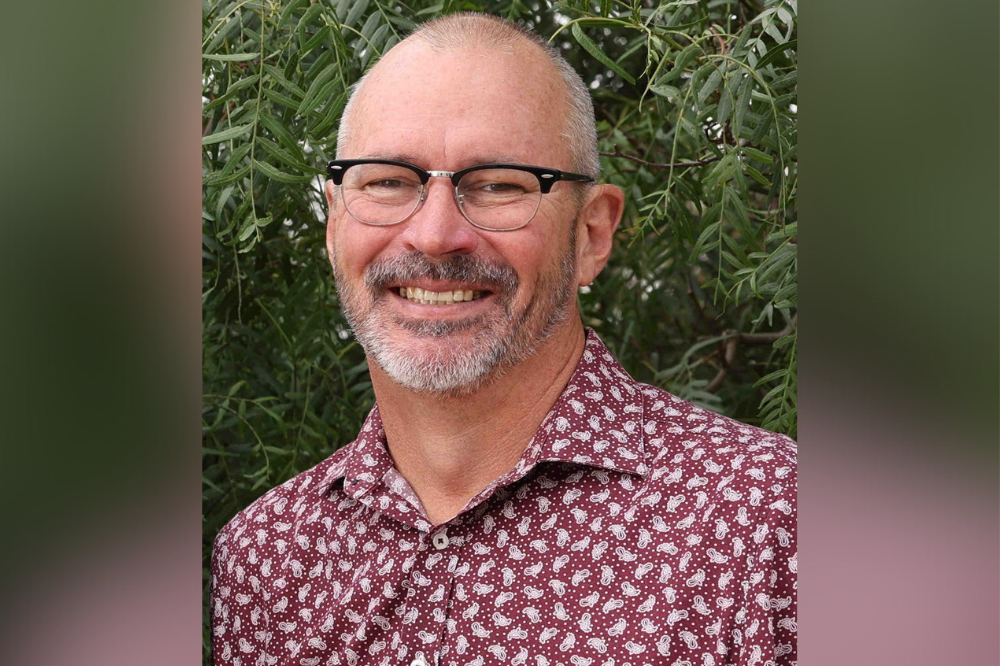
When Peter Hutton graduated from his boys only “elite” private school in 1989, he swore he’d never go back. In a 2014 TedX talk, Hutton recalled “violence, bullying, day-to-day putdowns” growing up at school – and that was from the staff.
At age 29, Hutton was back at school – but this time, he was at the other end of the principal’s desk, and, as he puts it, “saving a younger version of himself”. In doing so, he’s saving many other young people by instilling the school culture he never had.
In 2009, Hutton was appointed Principal of Templestowe College (TC), transforming it from a failing school into one of Australia’s most innovative. During his time as Principal, Hutton and his leadership team pioneered flexible schedules, individualised learning, and student-driven initiatives, growing from 286 to 1,000 students. Since then, Hutton has taken the stage at major conferences worldwide to show other leaders what is possible when they think – and most importantly act – big.
After 25 years of leading student-centred schools, it was time for the next adventure. In 2018, Hutton co-founded Future Schools – a movement and network where future-focused educators across the world could connect and explore what’s possible in education.
Today, Hutton is the Executive Director at Global Village Learning (GVL), a position he has held since August 2022. Formerly Gisborne Montessori School, GVL is an independent school located in New Gisborne, Victoria, offering programs from 3-year-old kindergarten through Year 10, with plans to introduce Years 11 and 12 in 2025.
Give young people a seat at the table
Unlike most other schools, GVL champions a shared leadership model rather than the traditional ‘top-down’ model.
“One of the things that we started at TC that then became mandated in the in the Victorian system is that we invited young people on college council,” Hutton told The Educator.
“All schools, regardless of type, should be encouraged, supported, or even mandated to have student representation – not just on a student representative council, but on the school council itself.”
Hutton is no fan of the SRC, which he says “often takes up the time of well-meaning and capable young people on the most mundane of activities.”
“In many cases, SRCs see these young people, say, running a sausage sizzle rather than having genuine consultative input into the important changes that are occurring within their own schools,” he said.
“In state education, it's mandated that staff are consulted, which means having an opportunity to provide input prior to the decision-making process. So, why don't young people, who are the whole beneficiaries of the whole process, have the same right to be consulted on any changes?”
Hutton said this doesn’t necessarily mean adopting every idea the student proposes, but rather giving them a seat at the table so their opinions can be considered.
Creating a leadership pipeline that lasts
When it comes to building the capacity of staff, Hutton says a ‘deliberately developmental’ leadership model is an effective way to grow leaders as opposed to just filling a role.
“Let's say you get a curriculum coordinator, and you know they're doing a fantastic job, and you know everything, and it's all running really well. Some leaders will say, well, that's awesome, that person's never moving from that role. Whereas in a deliberately developmental model, once a person attains a level of functional confidence, they then get given another role,” he explained.
“They might have a parcel role to work with and mentor the next person coming into that role, like the one that they've just vacated, but their skills are being deliberately broadened, and that is across the whole school, so you've got people with specialties in the various areas.”
Hutton said building high performing teams in schools is about creating a culture where individuals feel encouraged to step out of their comfort zones and embrace new challenges.
“I've worked with various leaders, some principles, you know, could you know, they might have been in, in the principalship for 20 years and they've had one other person go on and become a principal, whereas others might have had ten people go on and take on leadership because they've had their leadership talents nurtured – not just being valued for their ability to do a particular job,” he said.
“If we're modelling, if we're modelling in education what we what we need for the future. We need people to be, to be adaptive, to be continually learning all the time.”
Hutton acknowledged that sometimes staff will “need a bit of a push” but said they often thrive when they realise the trust being placed in their potential.
If they understand that the reason that they're being given these new roles is because the principal wants to see their growth and development as an individual, they’re more likely to embrace the challenge and succeed.”


